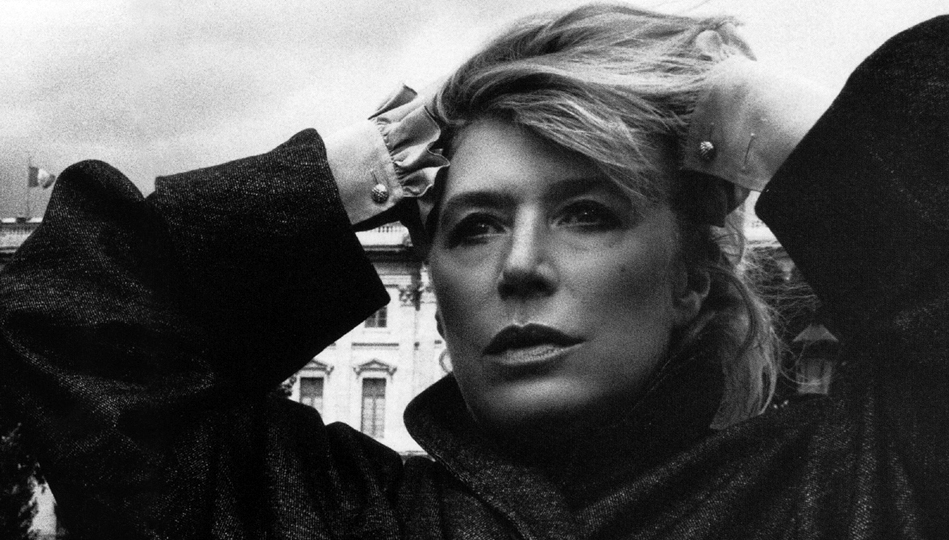Timeline: A Brief History Of, And Appreciation For The One And Only, Miss Marianne Faithfull

By Dave Swanson - Summit FM Contributor
RIP Marianne Faithfull (December 29, 1946 - January 30, 2025)
Of all the amazing female artists in the history of rock and roll music, there are few quite as intriguing, captivating, or simply beautiful, as Marianne Faithfull. She has long been a tower of strength, and her journey has been a long and interesting trek through a variety of musical and human adventures. To many, she is instantly remembered as this striking young woman who won the heart of a young Mick Jagger, and became half of one of rock and roll's most celebrated couples in the mid-1960s. While her recording career ran side by side to that of The Rolling Stones, and her first hit, 'As Tears Go By,' was a Jagger/Richards composition, Faithfull was always her own musical soul in search of her own expression.
Initially discovered by Rolling Stones manager Andrew Loog Oldham, who thought he could make her a pop star, she signed to the Decca/London label, and between 1965 and 1967, issued a total of seven albums and ten singles, four of which cracked the Top 10. Over the course of those records, she tried her hand at pure pop, folk, a more sophisticated style of pop, and a tinge of psychedelia. Her voice was pure and honest throughout, despite a slight lack of identity at times. During this time frame as well, her life took a major turn, as she became romantically involved with Jagger, a relationship that would both benefit and damage her.
Covering songs by Jackie DeShannon, Bacharach/David, Jagger/Richards, and Tony Hatch, her 1965 debut was classic British pop, but by her second offering, 'Come My Way,' she was off on a musical adventure of her own. With songwriter Jon Mark, the duo reworked an album's worth of traditional folk songs. This approach would follow on her third LP, 'North Country Maid,' which also included compositions from Donovan and Bert Jansch. Her fourth and final album of the '60s, 'Love In A Mist,' would draw from both pop and folk influences.
By 1968, she had somewhat backed away from her music career, though it was a 1969 single that would forever change the way people viewed and understood Faithfull in musical terms. Decca issued a single, 'Something Better,' written by Brill Building mainstays Barry Mann and Gerry Goffin, to promote a best of album, 'The World Of Marianne Faithfull.' It was, however, the B-side that caught attention. 'Sister Morphine,' co-written by Faithfull with Jagger and Richards, made its first appearance on her solo single, with her vocal, nearly two years before The Rolling Stones would issue their version on 'Sticky Fingers.' The record biz, being the cruel and questionable place it was (is), failed to give her credit for the song upon the U.S. release. This issue was not rectified until the early 1990s!
For the next decade, Faithfull only recorded two albums. 'Dreamin’ My Dreams,' in 1976 (later reissued as 'Faithless’) and 'Rich Kid Blues,' recorded in 1971, with songs by Bob Dylan, George Harrison, Phil Ochs, Cat Stevens, and others. A phenomenal album that, for legal reasons, remained unreleased until 1985.
It was, however, in 1979 when Faithfull found her true voice with the release of the legendary 'Broken English' album. Combining elements of new wave, reggae, and electronic music, it helped put her music in clubs around the world, while it earned the most glowing reviews of her recording career. "As bracingly full of venom and spite as anything her punk admirers could muster,“ and “from a sweet pop star to a legitimate rock songstress who is both mature and empowering, while the album itself being a masterpiece."
The musically adventurous album is also a no holds barred lyrical trip, with zero censorship. I mean, zero! The lyrics to the LP's final track, 'Why'd You Do It?' were so explicit in its description of an affair, that workers at the EMI plant walked out, refusing to press the album. The song still resonates, and shocks, today. It is possibly the most vicious flip off song ever recorded. You think Taylor Swift, Beyonce, or any of these other prancing little pop stars have attitude? You have no idea!
Released 45 years ago this year, 'Broken English' was a definite turning point in her development as an artist. “I made a decision to really, completely give my heart to the whole thing, and that’s what happened," she told the Guardian. "I was quite smart enough to realize that I had a lot to learn. You know, I didn’t go to Oxford, but I went to Olympic Studios and watched the Rolling Stones record, and I watched the Beatles record as well. I watched the best people working and how they worked and, because of Mick, I guess, I watched people writing, too – a brilliant artist at the top of his game. I watched how he wrote and I learned a lot, and I will always be grateful.” The title track became a club hit and critical triumph.
She would remain musically active and adventurous through the 80s and 90s, performing with everything from a jazz combo to a rock band to an orchestra. She would hit a genuine gold streak in the 2000s with albums like 'Before The Poison,' 'Horses And High Heels,' 'Give My Love To London,' and 'Negative Capability,' many of which she teamed up with members of Nick Cave and the Bad Seeds, who proved to be perfect musical companions to where Marianne was at. The world weariness of her voice went to suit the songs, and her performances, better with age.
Throughout her life, she has battled everything thrown at her, from being berated by the press in the UK, to dealing with the male rock and roll ego, and the complications of the music industry, not to mention a serious heroin addiction that left her homeless at one point. There was also a battle in later years with cancer, Hepatitis C, a broken hip, depression, and lastly, a serious battle with Covid, which, sadly, left damage to her lungs and, therefore, making singing a difficult task at this point. Her most recent album, 'She Walks In Beauty,' from 2021, featured her own reading of some of her favorite poems, with musical accompaniment from Warren Ellis, of the Bad Seeds. Marianne Faithfull was and still is a tower of strength, with battle scars and a vast catalog of music to prove it. An eternally interesting songstress and human being, her story is one of strength, survival, and sonic adventure. "I don’t know why I believe in miracles. I just do," she surmised. "Maybe I have to, the journey I’ve been on, the things that I’ve put myself through, that I’ve got through so far and I’m OK.” One of a kind and just as cool, if not cooler, than her male counterparts and companions, Marianne Faithfull shines on.






